10 Years Ago, ‘Veronica Mars’ Was Meant to Usher in a New Age of Kickstarter Cinema. It Didn’t.

Struggling to recall the last time the internet seemed like a force for good in the world? Yancey Strickler can cite the exact date: March 13, 2013.
That’s the day that Kickstarter’s co-founder and former CEO Strickler and writer/director Rob Thomas launched the “Veronica Mars” Movie Project on the then-four-year-old crowdfunding platform. Within 11 hours, tens of thousands of “Veronica Mars” fans opened their wallets to quickly hit the $2 million goal to bring Thomas’ low-rated high school detective series starring Kristen Bell as the eponymous teen gumshoe back from the TV graveyard as a feature film, which opened in theaters 10 years ago on March 14, 2014.
More from IndieWire
“It was just love — that’s what it felt like,” Strickler told IndieWire about being in the room with Thomas when the “Veronica Mars” campaign launched, and the fan-raised funds rolled in en masse. “There was a documentary crew there filming; the cast kept calling us, and we couldn’t stop smiling. Everyone felt like a thing that had maybe felt like a failure was being redeemed.”
Here’s what the success of the “Veronica Mars” Movie Project success looked like in the moment: By the time the 30-day campaign officially ended in April 2013, almost 92,000 backers had pledged a combined $5.7 million to the project. Those figures shattered existing Kickstarter records and demonstrated the financial power of a dedicated fandom like the “Mars” Marshmallows, which had been eagerly awaiting fresh stories since the show’s 2007 cancellation.
The “Veronica Mars” Movie Project also made national headlines and attracted established filmmakers like Zach Braff and Spike Lee to Kickstarter as a way to fund their own features, forcing the industry to confront the implications of a studio-owned property starring famous faces finding a second life on a platform then-known for independent productions from yet-to-be boldfaced names.
For the record, Strickler says that some of the same conversations about independent vs. corporate projects were had within Kickstarter before “Veronica Mars” changed the young company’s calculus. “We did think a lot about that,” Strickler told IndieWire. “There were bigger consumer electronics companies trying to put things on Kickstarter, and we were not letting them do that. That didn’t really come up with ‘Veronica Mars.’ We viewed corporate-owned IP [and] artist-driven projects as being fundamentally different.”
Flash-forward a decade later, and Kickstarter-backed, star-driven projects haven’t exactly become a big business or “the future of movie financing,” as some eager 2014 headlines suggested. Scan through the current list of film projects seeking financing on Kickstarter, and you won’t see another canceled network series looking for a comeback or, for that matter, a feature or short fronted by a performer with Kristen Bell’s mainstream celebrity profile.
That’s not intentional on Kickstarter’s part. “We’re not trying to turn away A-listers by any stretch of the imagination,” said current Kickstarter film head, Elise McCave, who points to Joel Hodgson’s “Mystery Science Theater 3000” revival and Critical Role’s “The Legend of Vox Machina” as examples of recent creator-led campaigns that galvanized their existing fanbases.
“Kickstarter is an incredibly democratic platform, and to a great extent, what’s on there is guided less by our policies and more about what’s happening in the cultural milieu,” McCave said. “So yes, we haven’t seen projects with that sort of broad name recognition. But what we have seen time and again is that [success on Kickstarter] doesn’t necessarily take a project with a director or actor who is incredibly well-known on Main Street.”
As Marshmallows celebrate the “Veronica Mars” movie’s 10th anniversary, here’s a fresh account of how Neptune High’s ace sleuth cracked the Kickstarter code — and why a certain Brafflash may have doomed the chance for another brilliant but canceled show to repeat the achievement.
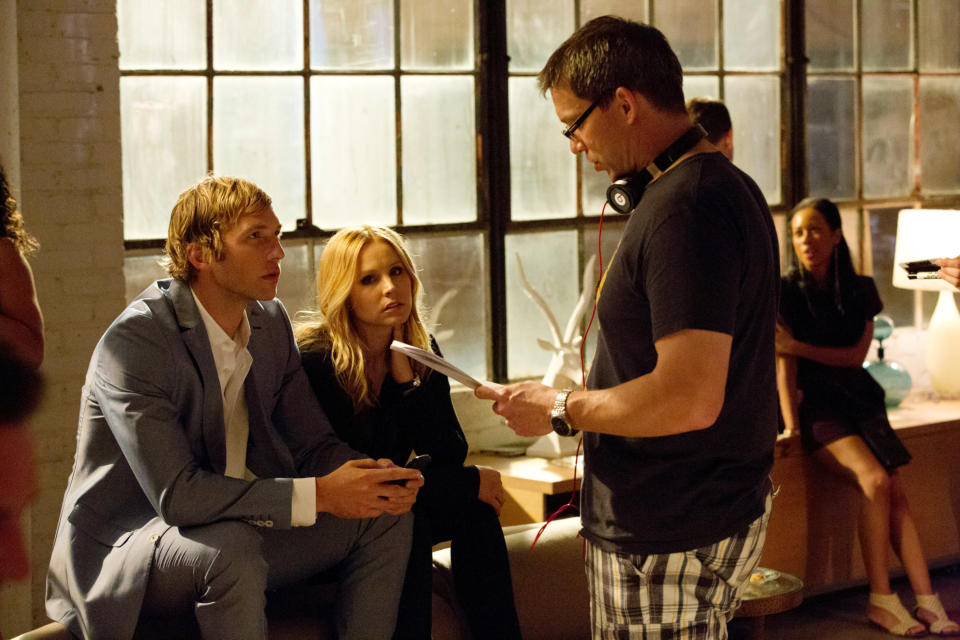
“Development” Hell
Even before Kickstarter went live in 2009, Strickler believed in the power of crowdfunding to save TV shows with high fan engagement, but low ratings. “When my co-founder, Perry Chen, first had the idea, it was after ‘Arrested Development’s almost canceled after its first season,” he said, namechecking the beloved but Nielsen-basement-dwelling Mitch Hurwitz-created comedy that lived on the cancellation bubble during its initial three-season run on Fox from 2003 to 2006.
“We had a direct connection to [‘Arrested Development’ cast member] David Cross, so we pitched him on using crowdfunding to save the show,” Strickler said. “He politely informed us how little we understood how the entertainment industry worked!” Still, their outsider optimism clearly resonated with Cross, who was an early investor in the online platform that became Kickstarter.
The next time Strickler had the opportunity to save a show via the kindness of crowds, the pitch came directly from the creator. In the fall of 2011, Rob Thomas emailed Kickstarter and connected with the site’s VP of community, Cindy Au. “He wrote to say, ‘I’m the creator of ‘Veronica Mars’ — would you all be interested in talking?’” Strickler said, pulling those 13-year-old exchanges with Thomas out of his email archive. “He had such a great attitude and was so passionate and upbeat about his work. It can be very easy to have a chip on your shoulder, but instead, I got the sense that he believed in what he was doing. I respected the way he came at it.”
Talks between the Kickstarter team and Thomas quickly led to meetings with the show’s owners at Warner Bros., who seemed receptive to the idea of letting fans resurrect a franchise they’d let lie fallow. Strickler and Thomas recruited Bell and other “Mars” cast members to appear in a pitch video announcing the project while awaiting the final thumbs up from the studio.
One year later, they were still waiting. Looking back, Strickler blames “leadership changes” at Warners for putting the Veronica Mars Movie Project on a seemingly permanent hold. “For whatever reason, the studio wasn’t comfortable with it, and it just sat there,” he said. “But Rob and I continued to talk. He always said, ‘I’m not giving up on this — we’re gonna find a way.’”
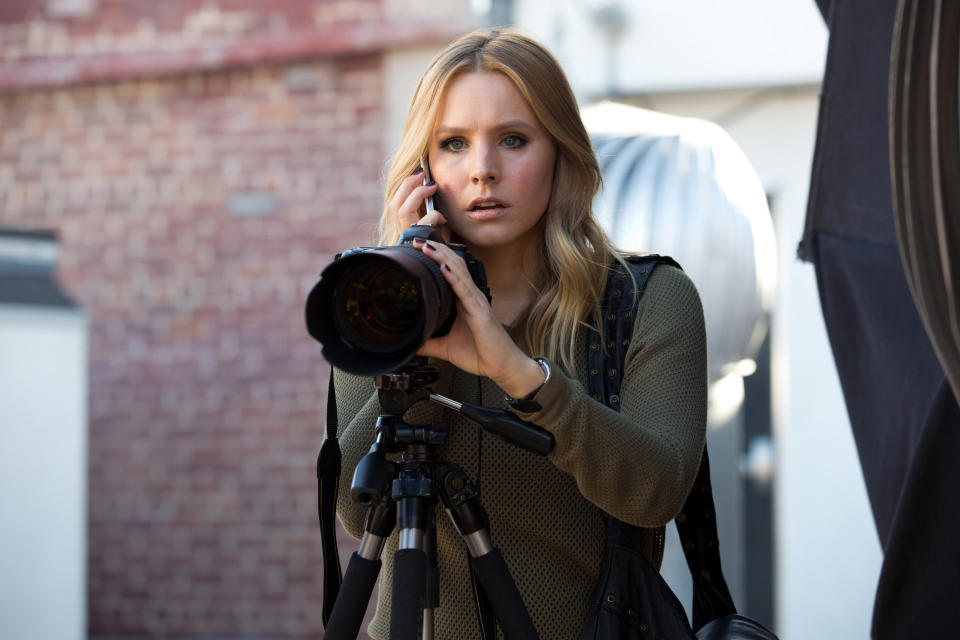
Getting Real
By early 2013, another round of leadership changes at Warners installed executives who were willing to let Kickstarter activate the Marshmallows, a change of heart that Strickler chalks up to low expectations. “It seemed insignificant enough to be ‘no harm, no foul.’ That was the sense we got from them.”
With the “Veronica Mars” Movie Project suddenly a go again, Thomas reshot the pitch video and worked with Kickstarter to assemble the various reward tiers — a key element of any successful campaign — ahead of the March 13 launch. Kicking in $10 got you a PDF of the shooting script while $10,000 scored you a speaking role in the film … provided, of course, that you didn’t “go all hammy” when it was time for your close-up.
“I remember Rob loving the fact that you could pay to be an extra,” Strickler said. “He really liked super-fans being able to visit the set. But mostly this represented him and his audience being able to greenlight a project rather than just being stuck in a forever purgatory. Kickstarter was the door, and on the other side was work that could be real.”
Things got real for Thomas and the cast when cameras rolled on the “Veronica Mars” movie in the summer of 2013, with the production costs coming entirely from the crowdfunded $5.7 million budget. Warners’ financial involvement remained limited to marketing and distribution, although Entertainment Weekly later reported that the studio did foot the bill for an additional shooting day following a test screening. The movie had its world premiere at SXSW on March 8, 2014, followed by a digital release and a limited theatrical run a week later.
“It’s kind of a blur,” Strickler said, recalling the premiere. “The credits showed the names of all the Kickstarter backers, and people cheered when they saw their names. 2014 was a simpler time when you could just enjoy things! There was no other cultural dimension apart from people liking a piece of creative entertainment.”
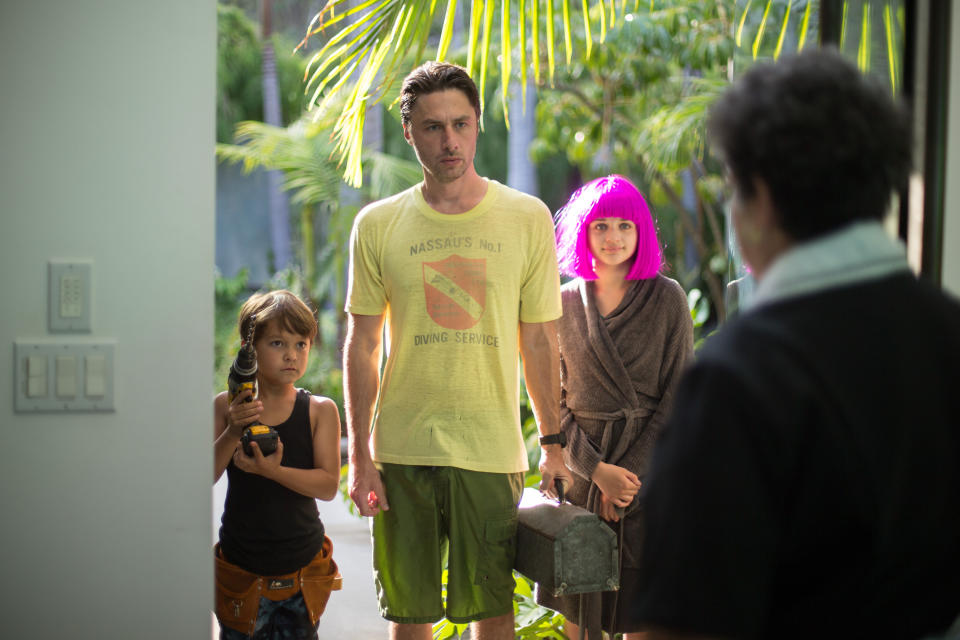
The Brafflash Cometh
Despite the headlines generated by its crowdfunded resurrection, the “Veronica Mars” movie, like the preceding TV show, didn’t exactly become a mainstream pop culture sensation. But the experience proved Strickler’s longstanding belief that Kickstarter could venture where legacy Hollywood studios feared — or, more accurately, didn’t bother — to tread.
“The cultural atmosphere of the 2000s was a lot about dumb studios or dumb television networks canceling things and fans being helpless,” he said. “But there was more of us than there are of them, and I always felt that what worked [for us] on a small scale could work on a large scale. And ‘Veronica Mars’ was the perfect project: It was the lowest-rated show on TV, but it mattered more [to fans] than people imagined.”
Prior to ‘Veronica Mars,’ Kickstarter’s chief claims to cinematic fame included Jeremy Saulnier’s “Blue Ruin” and Paul Schrader’s “The Canyons,” both of which launched their comparatively micro-budgeted campaigns in the summer of 2012. After “Veronica Mars,” Strickler welcomed directors like Zach Braff and Spike Lee into the platform’s fold to fund movies with higher sticker prices.
On April 24, 2013 — nearly two weeks after the “Veronica Mars” Movie Project received its final pledges — Braff launched a campaign for his “Garden State” follow-up, “Wish I Was Here,” eventually securing $3.1 million in backing. “The Newest Hottest Spike Lee Joint” aka “Da Sweet Blood of Jesus,” followed on July 22 and raised over $1.4 million.
“We wanted to see that model get more and more normalized,” Strickler said of the projects he hoped to see Kickstarter launch in the wake of “Veronica Mars.” “And I was always very driven by the idea of supporting creative people who I admired. Weirdly, we always rooted for Kickstarter to become boring! It’s something in the background that people accept and understand, and it’s not a big deal.”
But Braff’s Kickstarter project in particular ballooned into a big deal, with outlets like The Wrap and The Guardian — not to mention critics on social media — questioning whether a successful actor should ask fans to fund a passion project. (Complicating matters further was the revelation that Braff secured additional funding for “Wish I Was Here” from established film financiers.) Kickstarter stood by Braff during the ensuing Brafflash, and Strickler admitted it was “tough” to suddenly be on the defensive as an artist-focused company.
“You weren’t actually seeing fans express dismay — you’re just seeing the internet do its thing,” he said. “The narrative that always made sense to us was: ‘Here is a person who has a fanbase and they’re trying to make something and cutting their own path to do it.’ That served our business model, obviously, but we also had the blanket assumption that it was a good thing. We’re in favor of the rights of the artist and that more creative work should exist in the world.”
“But when it comes to famous people, it seems like that unless you’re raising money for charity — and even then it can be cringe — you’re going to get attacked,” Strickler adds. “It’s something that people tread very carefully on.” In fact, Strickler said intense criticism surrounding “Wish I Was Here” scuttled several celebrity-driven projects that Kickstarter had in the works. “There were quite a few others that I think would have happened if the Brafflash hadn’t occurred.”
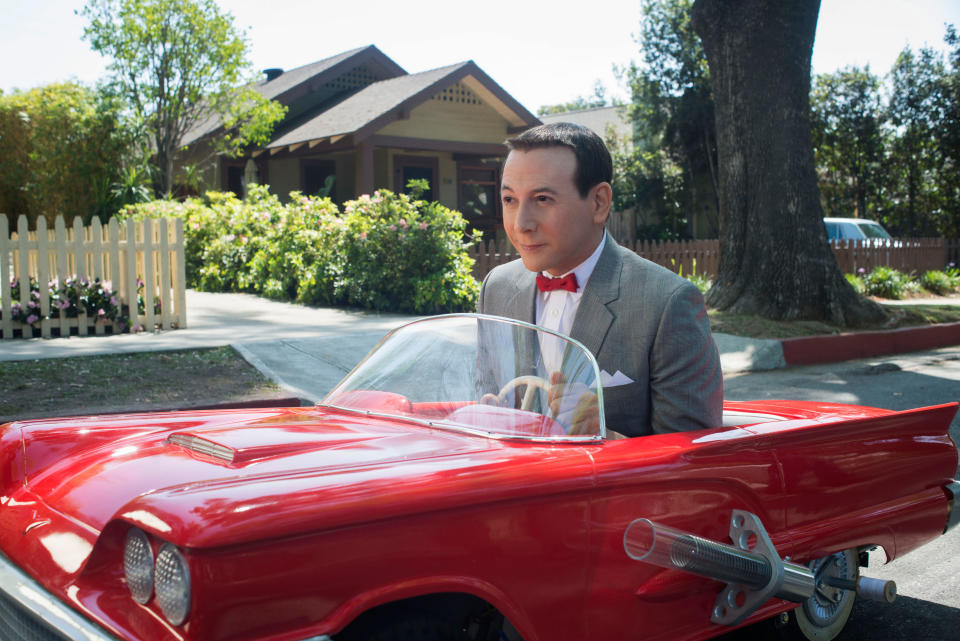
The Fight for Fandom
The first time that Elise McCave visited Kickstarter’s New York offices in 2013, the place was still vibrating with “Veronica Mars” buzzand the recent partnerships with Braff and Lee. “It was just this period of huge excitement,” McCave said. But when McCave joined the company three years later as director of narrative film, the vibe had notably shifted away from projects spearheaded by higher-profile creators.
“It’s sort of funny, because Zach’s project was successful, and so was Spike Lee’s,” she said. “There may have been a little blowback, but that didn’t prevent the projects from being [funded]. A rising tide lifts all boats, so our approach is to remind people that a big project from a well-known creator is actually a good thing for everyone.”
For his part, Strickler — who left Kickstarter in 2017 — says that certain celebrity-backed projects shifted away from the Kickstarter model after streaming services like Netflix saw the platform’s success with engaging existing fandoms of dormant IP. Case in point: “Pee-wee’s Big Holiday,” the 2016 Netflix film that marked the return of the late Paul Reubens’ signature alter ego. Speaking with Vogue that year, Reubens said that he had originally considered crowdfunding the movie on Kickstarter prior to aligning with Netflix. Strickler confirmed those conversations were very real.
“Paul was a good friend, and that was going to be a Kickstarter project,” Strickler said. “Then Netflix made the decision that they were going to be putting more money into making originals around the same time. There were a number of projects that likely would have ended up on Kickstarter and instead went to Netflix.” (Not for nothing, but one of Netflix’s first high-profile revivals was “Arrested Development”— the same series that Strickler had hoped to rescue a decade earlier.)
Other streamers soon followed Netflix’s example of reviving properties with built-in fandoms, up to and including “Veronica Mars.” When Thomas’ show returned for a fourth season in 2019, it was funded by — and streamed on — Hulu. As those services increasingly took higher-profile projects off the crowdfunding table, Kickstarter responded by going niche. “We have huge fandoms, but if you’re not in that fandom, they may not have registered on your radar whatsoever,” McCave said. “Every week, I find that I’m dipping into a new subculture that I haven’t heard of before.”
And Kickstarter is still capable of spotting the next big fandom before streamers are. McCave cites the example of “The Legend of Vox Machina,” which started its life as a crowdfunded 22-minute animated special that eventually raised over $11 million from nearly 90,000 backers — enough to fund an entire season’s worth of episodes that eventually streamed on Prime Video, which paid for a second season out of its own pocket. “Machina” now holds the record for the most-funded Kickstarter Film & Video project, with the “Veronica Mars” film in fourth place.
“As time has gone on, we probably have a better way of assessing the size and passion of a fandom than the studios,” McCave said, adding that Kickstarter has no plans to get into the streaming space itself. “Time and time again, we’ve seen projects that were passed over, and fans taking them into their own hands. That’s where Kickstarter can really thrive.”
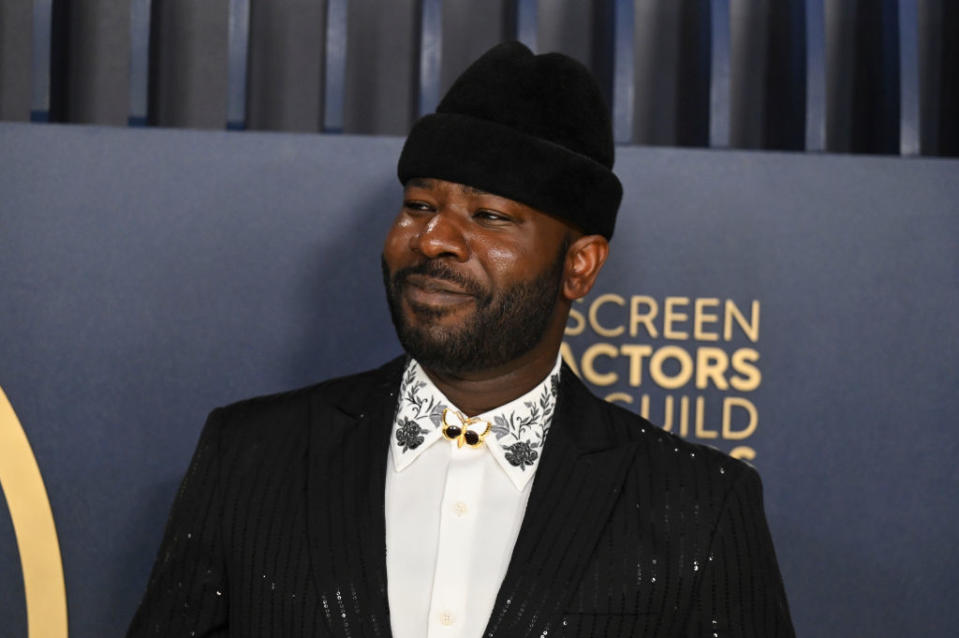
The New Class
Ten years after its Kickstarter revivals — and five years after its Hulu run — “Veronica Mars”appears to be out of next acts, at least for the time being. Speaking with TVLine in 2019, Thomas indicated that Marshmallows are in for another long hiatus. That same year also marked the creator’s last Kickstarter post where he invited the film’s backers to Austin’s ATX TV Festival to get a first look at the Hulu-funded fourth season.
Meanwhile, the current crop of successfully funded Kickstarter projects reflects the platform’s ability to reach the nichest of niche audiences, including Blu-ray versions of older cult films and features and shorts from emerging filmmakers. McCave says that’s an area where Kickstarter has also thrived, providing directors like “The Color Purple’s” Blitz Bazawule — whose 2018 debut, “The Burial of Kojo,” raised nearly $80,000 on the platform — with a path into the industry.
“He did that project, and then he worked with Beyoncé on ‘Black Is King,’ and then he directed ‘The Color Purple,’” McCave said. “Often we exist at that level: The project that gets somebody enough recognition that they can make the big studio picture or whatever it is they want do to.”
Even though Strickler is years removed from his Kickstarter tenure, he still thinks about the canceled shows that crowdfunding could possibly save — a list currently topped by Netflix’s late, great “The OA” from Brit Marling and Zal Batmanglij, which recently went viral after clips from the famous Season 1 dance finale circulated on X/Twitter. “The world needs more ‘OA,’” he said. “Let’s just dance our way through everything! School shootings, authoritarianism. I forgot how fucking crazy that was. But the show was so good, you didn’t care about the payoff.”
Best of IndieWire
The 45 Best Romance Movies of the 21st Century, from 'High Fidelity' to 'Carol'
The Best Thrillers Streaming on Netflix in March, from 'Fair Play' to 'Emily the Criminal'
Sign up for Indiewire's Newsletter. For the latest news, follow us on Facebook, Twitter, and Instagram.


